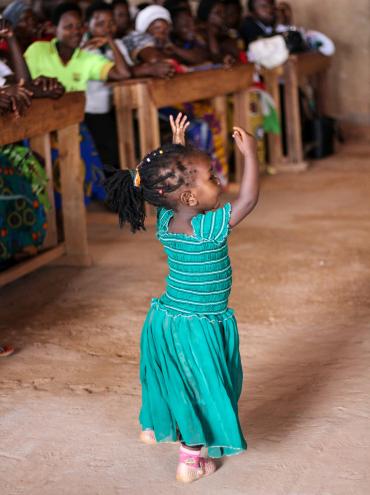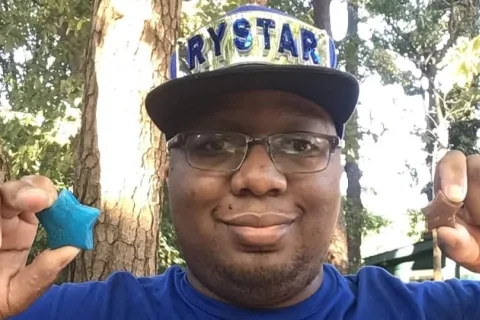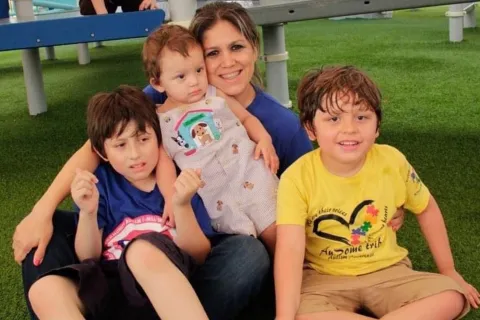Autism in Africa: Transforming care and services for a brighter future
This International Day of Persons with Disabilities, the WHO, UNICEF and Autism Speaks offer a roadmap to improving autism care in African countries.
By Pamela Dixon, Autism Speaks December 1, 2023Across Africa, families of children with autism spectrum disorder (ASD) and other developmental disabilities face stigmatization, delayed diagnosis and limited access to support services. In many countries, challenges in service delivery are compounded by humanitarian concerns like armed conflict, oppression, food insecurity and natural disasters.
Despite these profound risks, disability advocates, service providers and change-makers in Africa are working to develop new solutions so that every child has the opportunity to thrive. I witnessed this resilience and innovation firsthand at the 5th International Developmental Pediatrics Association (IDPA) Congress in Johannesburg, South Africa—an interdisciplinary meeting of the minds focused on advances in global science, practice and policy.
As I sat among this distinguished group ahead of International Day of Persons with Disabilities, I was proud to represent Autism Speaks alongside my colleagues from the World Health Organization (WHO) and UNICEF to launch the Global Report on Children with Developmental Disabilities. Developed with technical and financial support from Autism Speaks, this report is a roadmap for advocates and policymakers in underserved countries around the world looking to improve services for children with autism and other disabilities.
The report outlines three key action steps that can improve the lives of children with ASD and other developmental disabilities in Africa:
Action Step 1: Ensure that caregivers and children with developmental disabilities have early access to information and support.
One of the biggest challenges faced by families of people with autism and other disabilities in Africa is inadequate information about developmental disabilities. Education and training of parents and caregivers at the time of diagnosis can provide both support for their emotional well-being and specific information and skills to support their children’s development, such as improving language and communication in children with intellectual disability or autism.
The WHO’s Caregiver Skills Training (CST), developed with support from Autism Speaks, offers a model for such a program. This evidence-based program has already been implemented in five countries in Africa: Kenya, Ethiopia, Zambia, Egypt and Uganda. Parents and children attend nine group sessions and receive three home visits, with expert-led training on topics like communication, daily living skills, managing behavior and coping by caregivers. The approach is family-centered, free of charge and accessible to families with low literacy levels. A self-paced eLearning version is also available.
Action Step 2: Embrace technology to transform care systems for children and young people with developmental disabilities.
Most children with developmental disabilities and their families encounter barriers in accessing assessment as well as diagnostic, interventional, educational and social support. In low and middle-income countries, the identification and treatment gap for mental and neurodevelopmental disorders is estimated to be more than 90%.
The use of digital and other technologies for identification, intervention and training may help close these gaps. For example, digitized, culturally-adapted assessment tools like the Nigerian Autism Screening Questionnaire (NASQ) web app, soon to be released as a community pilot by Bloom Buddy in partnership with Autism Speaks, will support parents and caregivers to identify symptoms of autism prior to age two—earlier than neurological developmental screenings typically begin in Nigeria’s healthcare system—allowing for earlier intervention.
The Autism Speaks Autism Care Network’s ECHO Autism clinics provide another technology-enabled model that could transform training for clinicians and service providers. Spanning a range of topics, these clinics virtually bring together experts and service providers to improve knowledge and competency of ASD and its co-occurring conditions through case-based, facilitated discussion.
Action Step 3: Remove barriers to participation in society and foster environments that enable meaningful inclusion.
Children with developmental disabilities and their families often experience stigmatization and discrimination that affect their opportunities to engage in the world around them.
For example, research shows that in several countries throughout sub-Saharan Africa, having a child with a disability may be seen as a punishment due to witchcraft or wrongdoing. As a result of these cultural norms, a study revealed that in eastern Uganda, a region largely comprised of rural farmers living below the poverty line, disabled children have fewer opportunities to participate in already limited education and social services.
Inclusion is critical to a future where children and adults with developmental disabilities can thrive and shape their own communities for the better. To make this a reality, it’s necessary to address policy, environmental, community and family factors that limit participation in society, and develop inclusive environments where people with disabilities are welcomed.
These action items will allow policymakers and advocates to leverage a twin-track approach that improves the delivery of targeted programs that meet the needs of people with developmental disabilities, while simultaneously addressing barriers to inclusion in mainstream services and communities.
Pamela Dixon is senior director of clinical services and inclusion, public health at Autism Speaks.








